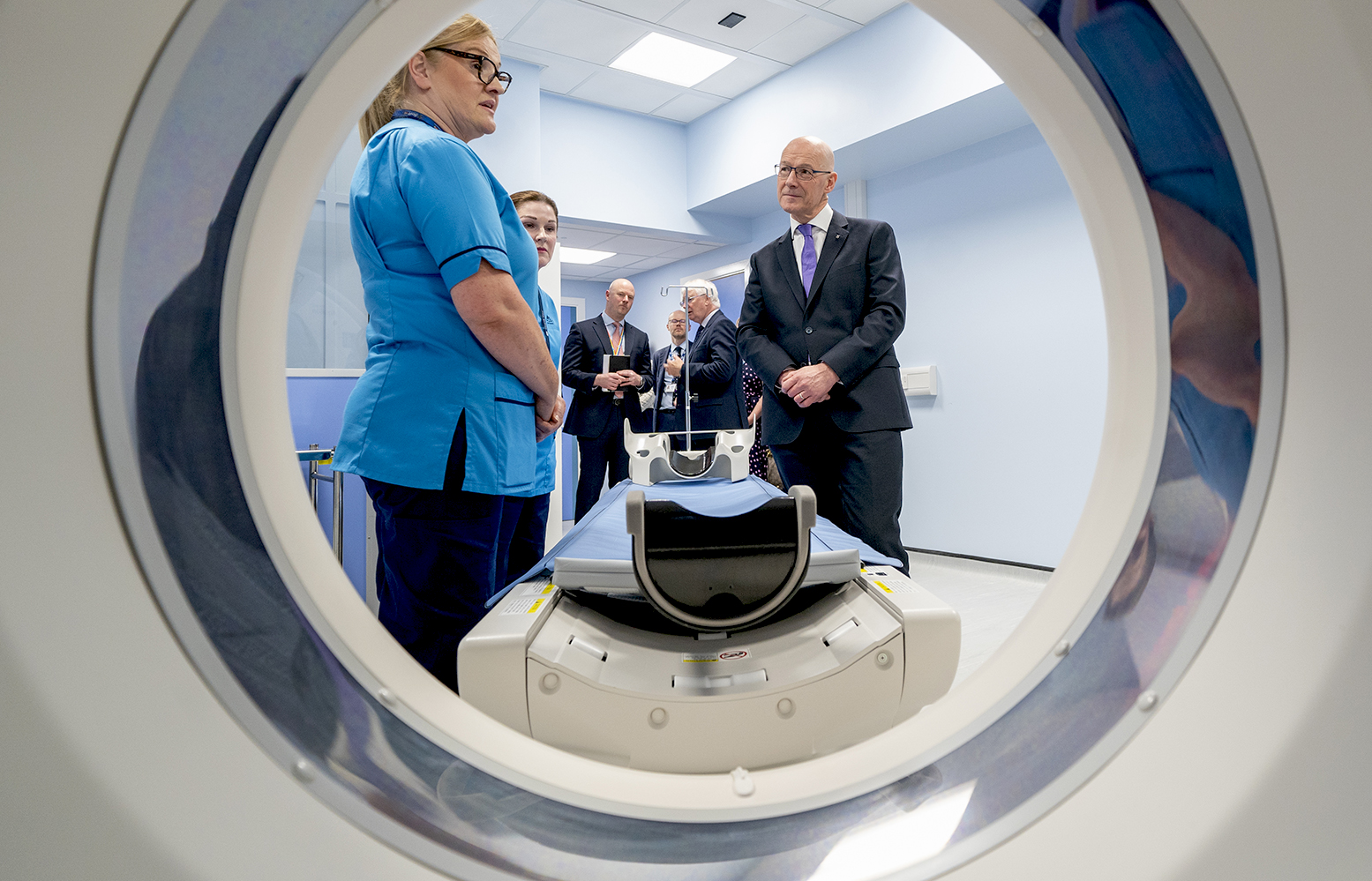By Chris Deerin
Conversations about welfare spending in Scottish politics are – contra Westminster – rarely about how it might be reduced. No, up here we are always looking for new ways to shovel more money out the door. If you belong to a vulnerable group, you should be reassured that someone somewhere is working on a plan to lob some taxpayer cash your way.
This might speak well of the Caledonian heart, but it doesn’t say much for the brain. As the frankly terrifying projections around future spending and demand pile up, one is left wondering whether the nation’s policymakers are ignorant, irresponsible or just plain daft. Whatever upset Rachel Reeves this week – bad personal news, rows with colleagues, a weakening PM, the hole blown in her fiscal plans – it was possible to feel a tightening of the throat at the likely consequences for Scotland’s future.
The welfare story north of the border has for years been one of steady expansion, even as economic growth has remained insipid and public services have become an ever-greater burden on the finances. Universal benefits wherever you look, top-ups to “stingy” Westminster handouts, the Child Payment, the Baby Box, and on it goes. If something twitches in Scotland, the state is waiting to write it a cheque.
This week, as all hell was breaking loose in the UK Government, Holyrood’s public audit committee was warning that the welfare bill in Scotland is set to increase from £6.8 billion in 2025/26 to £9.4 billion in 2030/31. With considerable understatement, the committee said that this presents “a risk to the Scottish Government’s financial position”. This is hardly the first alarm of its kind to be rung: by now we should be deafened by the clanging. Both the Scottish Fiscal Commission and Audit Scotland have repeatedly produced reports stating that the trajectory of the SNP’s spending plans is unsustainable. Its own civil service has said the same. But the governing party has barely wavered. There is an intention to cut the public sector workforce by 0.5 per cent every year, to trim back the cost of quangos, and to reduce the state’s property footprint, all of which will barely touch the sides of the problem.
It was only last year that Shona Robison, the Scottish Finance Secretary, announced emergency spending controls due to her government’s commitment to inflation-busting public sector pay deals and other expensive outlays. Any extra spending would only be allowed if it was “truly essential or unavoidable”. The strictures included a ban on ministers expensing biscuits for meetings.
Look after the pennies and the pounds will take care of themselves? That’s not how government works, and certainly not in the current straitened climate. The scale of the rethink required is too large, too complete. Yet there is no chance this SNP administration – or, arguably, one of any stripe – is going to grasp that particular thistle.
And so, on we go, up and up, more and more. The Personal Independence Payment (PIP) which has caused so much trouble at Westminster is administered as the Adult Disability Payment (ADP) in Scotland. Around 10 per cent of the adult population currently claims it – 475,000 people. That figure is soaring (as it has been in the south), rising by 50 per cent in three years.
It is obvious that PIP and ADP need fixed, that a fair number of recipients could be in work of some kind, which would be good for them and good for the economy. Unfortunately, Rachel Reeves’s decision to use a chainsaw rather than a smart, busy scalpel has surely killed, for the foreseeable future, the argument around reform. The SNP will breathe a sigh of relief: never mind the horrible data. If they’re not doing it, why should we?
And yet the scary numbers keep coming. The Nats already spend a billion pounds more on welfare than the block grant received from London. That figure will be £2bn by the end of the 2020s. Scotland’s population is aging fast, and over the coming decades will face the twin problem of a rising number of pensioners and a shrinking workforce able to pay for them. The NHS is going to eat up ever more of the devolved government’s budget – it’s projected to take up half of the total by 2075. Social care, wholly unaddressed, threatens to be ruinously expensive.
Holyrood taxes are as high as they can reasonably go – and will anyway have to be reworked if Reeves bumps them up at a UK level in her Budget. Economic growth continues to be elusive, and this soft-left SNP crew are hardly chasing it. How, then, will the books be balanced? Where will the extra funds required for Scotland’s heroic commitments to welfare and the NHS come from? Do we need to crash the national economy before we are willing to get real about this stuff?
The prospect of a serious conversation about welfare reform north of the border – serious reform of anything, really – about hard choices and winners and losers, was perhaps always unlikely. But after this week, even that vanishingly small possibility has been swept away like tears in the rain – or, indeed, on the frontbench.
[See also: The bond market has rescued Rachel Reeves from Keir Starmer]
